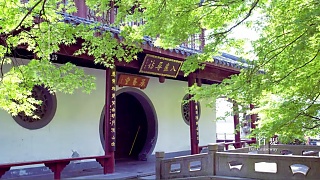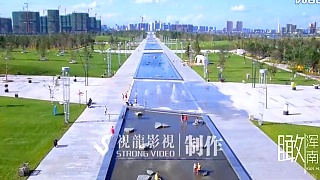LiaoNing province. A beautiful film ...
[640],shadow=true,start=,stop=DaLian at night ...
Dalian, located in China's Liaoning Province, is a vibrant coastal city with a rich history, stunning architecture, beautiful beaches, and a thriving culinary scene. Here's a guide for tourists visiting Dalian:
Xinghai Square: As one of the largest city squares in the world, Xinghai Square is a must-visit attraction in Dalian. It offers panoramic views of the sea and is a popular spot for leisurely walks, kite flying, and enjoying street performances.
Dalian Zhongshan Square: This historic square is surrounded by grand European-style buildings dating back to the city's colonial past. It's a great place to admire the architecture, take photos, and learn about Dalian's history.
Binhai Road: Known as Dalian's 'Lover's Road', Binhai Road is a scenic coastal promenade that stretches for several kilometers along the shoreline. Visitors can stroll along the waterfront, rent bicycles, and enjoy stunning views of the sea and city skyline.
Dalian Discovery Kingdom: This amusement park is a fun-filled destination for families and thrill-seekers. It features a variety of rides, shows, and attractions, including roller coasters, water slides, and a dolphin performance.
L�shun (Port Arthur): L�shun is a historic port city located near Dalian, known for its well-preserved colonial architecture and military history. Visitors can explore sites such as the L�shun Naval Port, L�shun Prison, and L�shun Museum to learn about the city's past.
Dalian Forest Zoo: Home to a wide variety of animals from around the world, Dalian Forest Zoo is a popular attraction for families and animal lovers. Highlights include the panda pavilion, safari park, and sea lion show.
Dalian Tiger Beach Ocean Park: This marine park is home to a diverse range of marine life, including sharks, dolphins, and beluga whales. Visitors can watch exciting animal performances, explore underwater tunnels, and even swim with dolphins.
Russian Street (Zhongshan Road): Located in Dalian's downtown area, Russian Street is a charming pedestrian street lined with shops, cafes, and restaurants housed in buildings reminiscent of Russian architecture. It's a great place to shop for souvenirs and sample Russian-inspired cuisine.
Bangchui Island: Just a short boat ride from Dalian, Bangchui Island is a scenic getaway known for its pristine beaches, crystal-clear waters, and lush greenery. Visitors can relax on the beach, go swimming, or explore the island's hiking trails.
Local Cuisine: Dalian is famous for its fresh seafood and local delicacies such as stir-fried sea cucumber, grilled squid, and seafood hotpot. Be sure to sample these dishes at one of the city's many seafood restaurants.
With its mix of natural beauty, historical landmarks, and modern attractions, Dalian offers a diverse range of experiences for tourists to enjoy. Whether you're interested in sightseeing, outdoor activities, or simply relaxing by the sea, Dalian has something for everyone.

 Beautiful DaLian 美丽大连 超清
Beautiful DaLian 美丽大连 超清




















